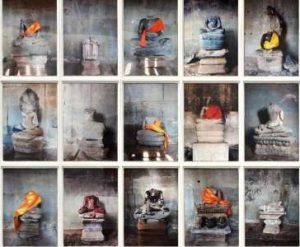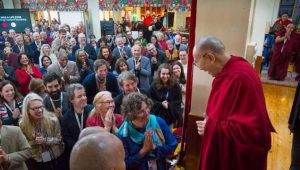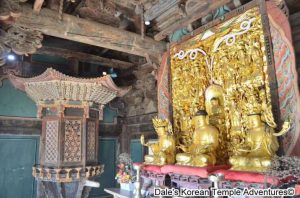It was at a meeting with the Robert H. N. Ho Family Foundation’s chairman that I was first acquainted with Bill Porter. Robert Y.C. Ho had introduced me to a certain book he had finished reading: Road to Heaven. Here was Mr. Ho’s invitation to build a bridge with its author, who I would find out later was much more popular in Mainland China than in the West. By Bill’s own admission, for each book he sold in the United States, a dozen more flew off the shelves in Beijing or Shanghai. I later discovered he had been bestowed with a grant by another foundation – the prestigious Guggenheim Foundation, specifically – to write a new book about thirty-six Chinese poets of old. His objective is to travel around China, visiting the homes, graves, and exhibits of these literary masters, and return with translated verses and commentary of their poetry. He has already flown into China once for this purpose, and the second time will be March or April in 2013. This current work is a more personal journey than the typical translation and commentary, or one of the many travelogues he has completed. It is, in his words, a poetic version of one of his most famous books, Zen Baggage.
When Bill isn’t backpacking across China, he is writing and translating at his Port Townsend home. He’s taking a break when I call him. It is 6pm at his end and I can hear the telly. His voice is young, brisk, and direct, so young that I thought I had the wrong number, or that his son might have answered. He has personal links with Hong Kong, and while his time in the city was short, they were indisputably significant. It was not long after 1989, the year in which Road to Heaven is set, that Bill arrived in Hong Kong. During his stay from 1991 – 1993, he worked for Metro News as a travel presenter, traversing all across China from the mouth of the Yellow River to the villages of Yunnan tribes. Those old tapes (this was long before the digital or social media age, which have changed journalism forever) are long gone, but he is working on a five-volume series based on those trips that he recorded so many years ago. Two have already been released (Yellow River Odyssey and South of the Clouds), and the third one, which is about the Silk Road, will be out in December. He is also working on a revision of his original edition of Capturing a Plum Blossom (1996). Finally, he is listed as an advisor to a documentary on hermits by Chinese movie firm Emei Films.
So it is perhaps not surprising that while his present work with the Guggenheim Foundation is his main focus, much of his forthcoming publications are still with Chinese publishers. I had already heard of his pen name, Red Pine, but his apparent popularity on the mainland was something I was ignorant and surprised about. He has an almost charming nonchalance about his presence in the States. Of course, he is not unnoticed if he has received a grant from the Guggenheim Foundation nor if he has sold translations and commentaries of a scholarly standard. But he is upfront about it: “I don’t have a massive audience in America.” He does not seem so interested in catering to Americans because his main readership is actually in the country that provides all his inspiration and classical texts. Simply put, not that many Westerners read his books, not when for every one he sold in the States, he sells significantly more on the other side of the Pacific.
I suspect that Bill has become so successful at helping to alleviate the cultural poverty of the average Chinese because he never intended to write for Chinese tastes, or in Chinese for that matter. “I once imagined myself to be a bridge between East and West, but it turned out differently,” he tells me. I do not know whom the translator of his books is, but they have certainly struck a chord with many. Bill believes one of the reasons for his popularity is “cultural poverty”. Generations of Chinese rural dwellers and urbanites, even during the initial period of contact with foreign states, were culturally and geographically closed off from their own heritage. This isolation intensified under the Cultural Revolution period and a dominating culture of materialism stifled voices urging rediscovery of this heritage. Even today, many cultural roots have been choked off or severed for the Chinese. A poverty of cultural awareness casts a shadow over the emotional and social wellbeing of the ascendant country. Bill might just be one of those authors that go some way to helping to heal these scars of absence that have been carved across China’s artistic and creative landscape.My initial assumptions about this American translator were confounded, but Bill clearly never expected to be a bridge to China for its own people, either. But China is an old, hardy civilization, so old that scholars and translators keep returning there for work and inspiration. Even if China’s creative landscape needs healing, it is a vast realm that endures and contains many worlds – mountainscapes, riverscapes, forestscapes, cityscapes, desertscapes – so while Bill may lament China’s cultural poverty, his voice does not sound pessimistic or downcast at all. On the contrary, his work, just like the rise of modern China, is just beginning. Perhaps that is why his voice sounds so young.
















